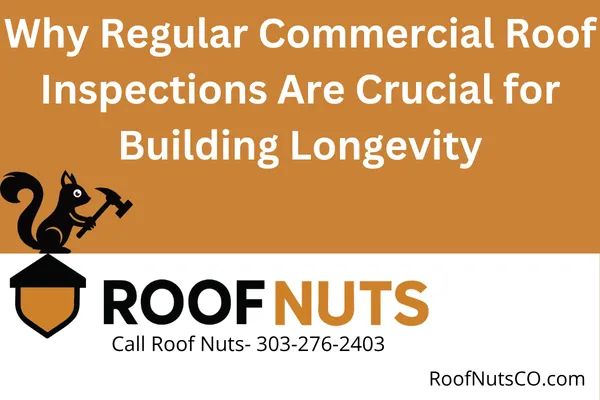
Why Regular Commercial Roof Inspections Are Crucial for Building Longevity
Why Commercial Roof Inspections Matter More Than You Think
If you manage a commercial building in Colorado or Georgia, keeping your roof in top shape isn’t optional—it’s essential. Your commercial roof protects your assets, staff, and operations. But without regular inspections, small issues can grow into major problems.
Here’s why scheduling a professional roof inspection is one of the smartest maintenance moves you can make.
Key Benefits of Commercial Roof Inspections
1. Catch Problems Early
Small leaks, drainage issues, and flashing damage are easier and cheaper to fix if caught early.
Inspections help identify wear and tear before water infiltrates insulation or structure.
2. Extend the Roof's Lifespan
A well-maintained roof lasts years longer than one that’s neglected.
Routine inspections and minor repairs can delay full roof replacement by decades.
3. Prevent Business Disruptions
A failing roof can mean interior damage, inventory loss, and operational downtime.
Inspections help prevent emergencies that cost more than just repair dollars.
4. Document Condition for Insurance
Insurance claims are easier to file—and win—when you have inspection records.
Many insurers require annual or semi-annual inspections for coverage compliance.
5. Stay Code-Compliant
Roof inspections help you meet local code requirements based on IBC and IRC standards.
Compliance issues can cause problems during property sales, audits, or permit renewals.
What a Commercial Roof Inspection Includes
A thorough inspection by a certified roofing contractor should check:
Membrane or metal surface condition
Drainage system (gutters, scuppers, internal drains)
Seams, flashing, and fasteners
Signs of ponding water or insulation damage
Perimeter and rooftop equipment connections
Expansion joints and penetration points
Inspectors should also document findings with photos and provide a written report with recommended actions.
How Often Should You Inspect?
At minimum, schedule a commercial roof inspection:
Twice per year (spring and fall)
After severe weather (hail, heavy snow, wind)
Before and after major construction nearby or on the roof
In hail-prone areas like Colorado or storm-heavy regions like Georgia, inspections after each severe weather event are strongly recommended.
FAQ: What Commercial Property Owners Want to Know
How long does a roof inspection take?
Most inspections take 1 to 2 hours depending on roof size and complexity.
Is a commercial roof inspection disruptive to operations?
No. Most inspections are performed externally and won’t affect business inside the building.
What happens after the inspection?
You’ll receive a full condition report and, if needed, a quote for any recommended maintenance or repairs.
Trust Roof Nuts for Commercial Roof Inspections in Colorado & Georgia
Roof Nuts CO and Roof Nuts GA provide trusted inspection services for commercial properties in Denver, Colorado Springs, Atlanta, Savannah, and beyond. We know code, we know climate, and we know how to help you stay ahead of roofing issues before they cost you.
📍 Schedule your inspection today:
Colorado: RoofNutsCO.com | 📞 303-276-2403
